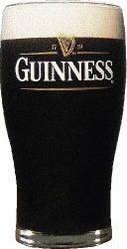Diageo extends Africa beer push
Published: Wednesday | December 2, 2009

Diageo PLC, the world's largest alcoholic beverage company, said Monday it is launching Guinness stout in Angola, continuing a push to develop its lucrative beer business in Africa and southeast Asia.
Diageo also said it saw opportunities to grow its share of the United States (US) beer market, via potential new product launches and innovation of its existing brands like the pour-it-yourself Guinness experience already popular in Ireland.
Beer sales represent 22 per cent of Diageo's international business, behind Scotch on 26 per cent, and Diageo sees the potential for significantly more sales of its flagship Guinness, which Diageo Ireland Managing Director Brian Duffy said is still "more loved than drunk."
Diageo's Africa beer sales, which began with the first formal export to Sierra Leone in 1827, now account for 39 per cent of the company's total net beer sales, overtaking Europe last year as the leading geographical market.
Drinking-age population
And Diageo has plans to capitalise further on a continent where the economy is forecast to grow in mid-single digits from 2010 and the drinking-age population is also set to rise significantly.
"Beer is a growth driver, and we fully expect that to continue because I think the macroeconomics and the demographics are right," Diageo Africa Managing Director Nick Blazquez told reporters in London. "We are optimistic about the growth prospects both in the short term and medium to long term."
Diageo is introducing a new variant of its most famous brew in Angola - Guinness Original - after signing a deal with Unicer, the Portuguese drinks importer to the African country.
"Angola is a growing market and is already seven per cent of the African beer market and this is set to grow as the economy grows," Blazquez said.
The company plans to support the launch of the brew with a TV and outdoor advertising campaign across Angola, highlighting the brand's history.
The company is also eyeing next year's World Cup in South Africa, where it recently started production at a joint-venture brewery with Heineken SA, as a potential key moneyspinner.
While Diageo's home team Ireland missed a berth in controversial fashion - a handball-assisted goal by France ended their campaign this month - Nigeria, Cameroon and Ghana have all qualified for the world's premier football tournament.
Played every four years, next year's edition of the 32-nation event is scheduled for June 11-July 11 across nine cities in South Africa.
Diageo recently started produc-tion of Amstel at the Sedibeng Brewery, which has a capacity of 3 million hectolitres - still a tenth of what rival SABMiller produces in its home country. Diageo has a 25 per cent stake in the venture, with Heineken holding the remaining 75 per cent.
Blazquez also said that the company would be keen to repeat its success in other countries in tackling the illicit beer market in Kenya, where its offering of an ultra low-cost beer has enticed many people away from often dangerous moonshine, which is estimated to account for half of all consumption.
Diageo struck a deal with the Kenyan government five years ago to reduce the duty on its Senator Keg beer, launching a pilot that was so successful the government agreed to cut duty altogether two years ago.
In southeast Asia, Duffy singled out Vietnam and Thailand as potential major new markets, where he said the company would likely take on partnerships to brew the product locally then distribute through an exclusive agreement.
In the US, Duffy said the introduction of pour-it-yourself Guinness was likely. Trials of the service, which involves pubs and bars installing metered taps at special tables, has already proved popular in Ireland, where it is being rolled out in full.
Duffy added there was more room for the company in the US beer market beyond Guinness, which celebrated its 250-year anniversary this year, with Namibia's Windhoek and Kenya's Tusker already proving popular exports to Europe.
- AP

















